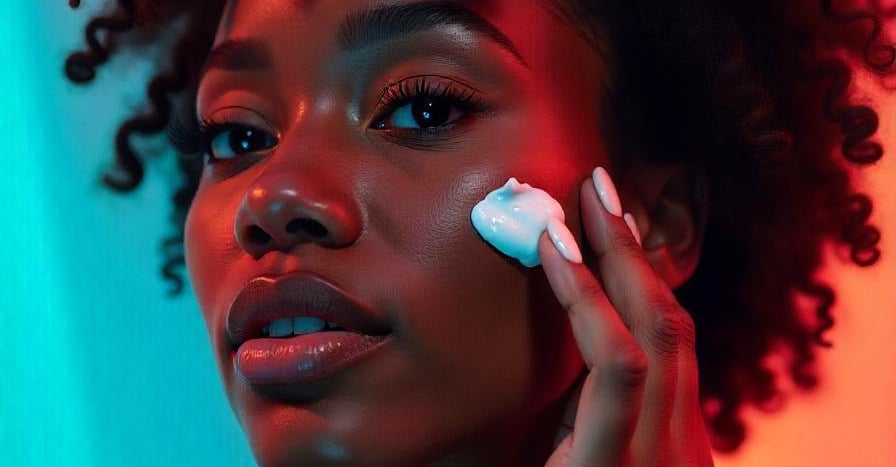Skincare Tips: What Dark-Skinned Women Should Avoid
As a dark-skinned woman myself I can say there are many misconceptions on how to care for our dark skin. In this post I try to analyze and provide skincare tips for dark skin at best!


Understanding Skincare for Dark-Skinned Women
Skincare is a vital part of self-care, especially for dark-skinned women who may have specific needs and considerations. While the beauty industry is evolving, it is important to be aware of what products and treatments to avoid to maintain healthy skin. This guide highlights crucial things to avoid in skincare routines to ensure optimal skin health and appearance.
Avoiding Certain Products and Ingredients
Hydroquinone: Some ingredients can adversely affect dark skin. One such ingredient to be cautious about is hydroquinone. While it is often used to treat hyperpigmentation, long-term use can lead to unwanted side effects, especially for those with darker skin tones. Instead, consider gentler alternatives that can brighten your skin without compromising its integrity.
It is commonly used in lightening and bleaching products. It works by inhibiting melanin production in the skin. This can be found as a 2% over-the-counter (OTC) or 4% prescription from the doctor. Hydroquinone should be avoided like a plague since it can trigger exogenous ochronosis(EO) in darker skinned individuals. Consider using Vitamin C, Niacinamide and licorice root extract.
Alpha hydroxyl acids (AHAs): This are among the most popular skincare ingredients which have lined the shelves and it can be hard to navigate. AHAs (Alpha Hydroxyl Acids) like glycolic acid can be harsh on dark skin since they can trigger the melanocytes (skin pigment-producing cells) to produce more melanin worsening the dark spots you intended to reduce or make them lighter. Instead use BHAs (Beta Hydroxyl Acids) like 2% Salicylic acid to get rid of oils and hyperpigmentation though results might be slower than when you use AHAs. You can combine BHAs with PHAs (Poly Hydroxyl Acids), CO-enzyme Q10 or papain exfoliants. But also add 10-20% Vitamin C or Niacinamide serum for better results.
They should be used with care. While they can be beneficial for exfoliation, overuse may lead to irritation and sensitivity, particularly for darker skin types. It is advisable to use AHAs sparingly and under the guidance of a skin care professional when necessary.
Laser Treatments
Laser treatment is a procedure which uses energy-based devices to improve skin or hair removal. This treatments can be good for people with fair skin but can be a disaster for darker skin people. They can cause burns and scarring especially when devices are handled by not well trained technicians. This can cause skin damage and hyperpigmentation, increase melanin due to increase in heat under skin layer which can lead to darker spots and patches on affected area.
Many dark-skinned women might consider procedures like IPLs and ablative lasers. However, these treatments can pose risks, resulting in hyperpigmentation or uneven skin tone. Opting for non-invasive treatments that are specifically designed for darker skin can help mitigate such risks.
Do Not Use Strong/Deep Chemical Peels
Superficial peels or lunchtime peel session once in a while to a dermatologist or aesthetician can improve the texture, radiance and bring youthfulness to your skin. Though deeper peels that you see on TikTok like the Phenol or TCA peels may seem to work with excellent results it should be noted that are not for dark skin. Again, these peels can trigger inflammation which can cause hyperpigmentation, uneven skin tone and dark spots and patches. They can damage the outer layers of skin and lead to complications like scarring or discoloration. Instead, look for lighter peels that cater to your skin's needs without being overly aggressive.
Surgical Procedures That Leave Obvious Scars
If the surgery is not life- saving then it's time to skip that appointment with your plastic surgeon. Normalization of plastic surgery has led many people to believe that they can change their face or body without repercussions. For darker skin individuals since the have thicker skin are easily susceptible to grow keloidal scars which cannot be easily concealed. Before having surgeries like lip lift, brow lift, rhinoplasty and any facial surgery consider doing a research to get a reputable and experienced plastic surgeon to ensure less occurrence of scarring.
Surgeries that leave obvious scars can detract from the natural beauty of dark skin. It's essential to thoroughly research your options and consult with a dermatologist who understands the unique characteristics of dark skin before pursuing any surgical route. Prioritizing treatments that complement your skin's natural texture and color preserves its beauty while minimizing potential complications.
Bottom line
Ultimately, understanding your skin type and what products or treatments to avoid can enhance your skincare routine significantly. Always consult with a qualified professional who has experience with dark skin to guide you in making safe choices. With the right approach, you can maintain healthy, beautiful skin for years to come.
